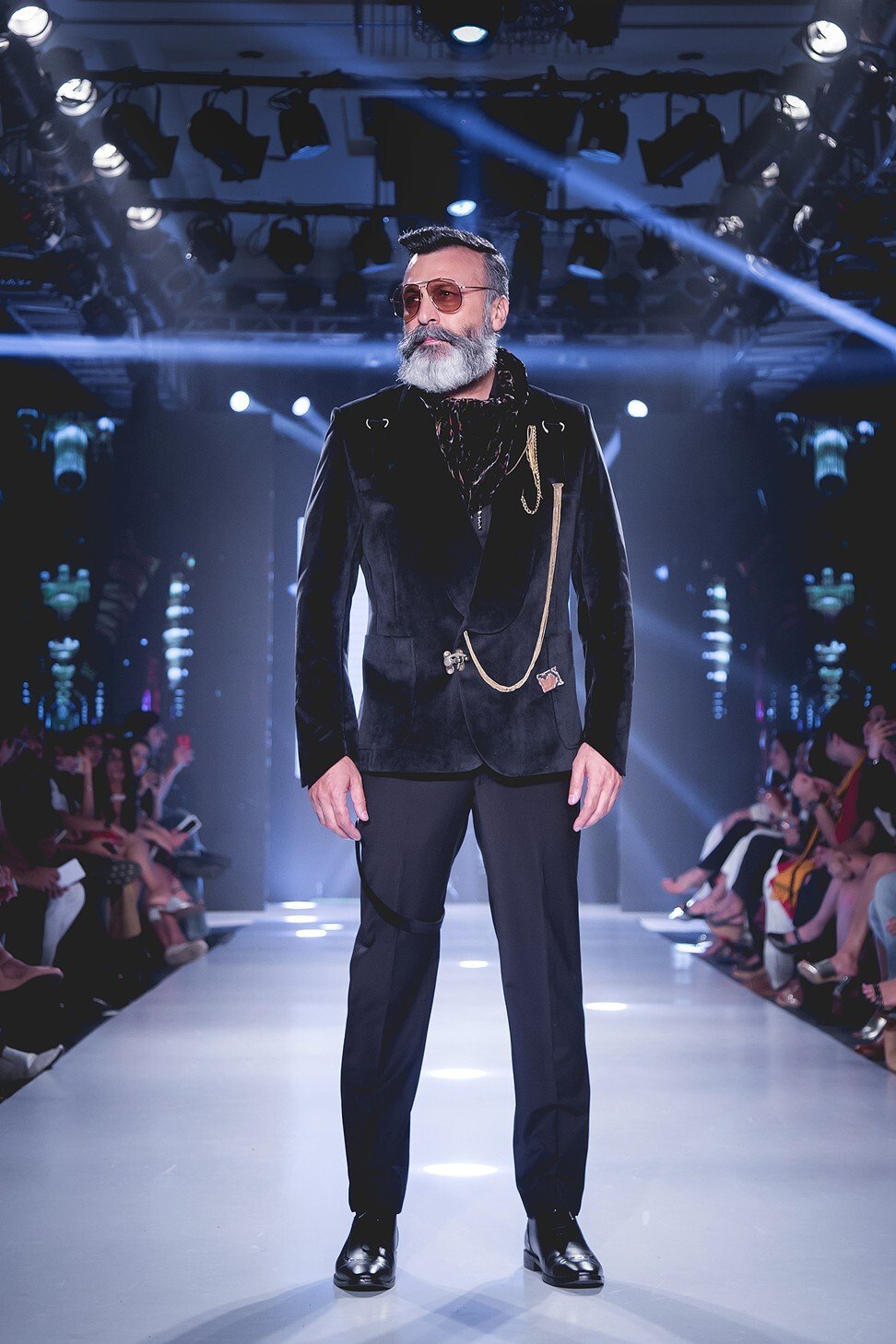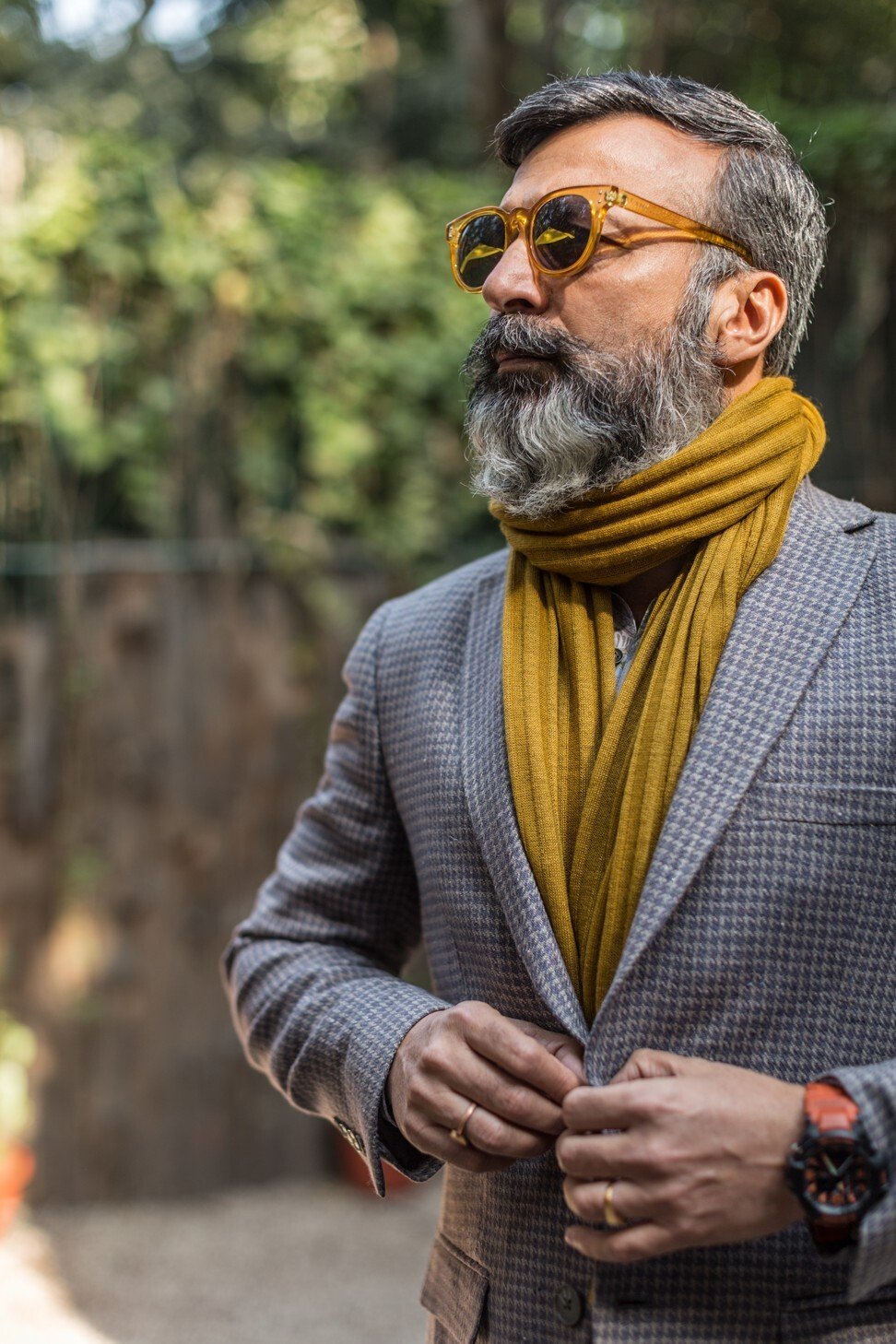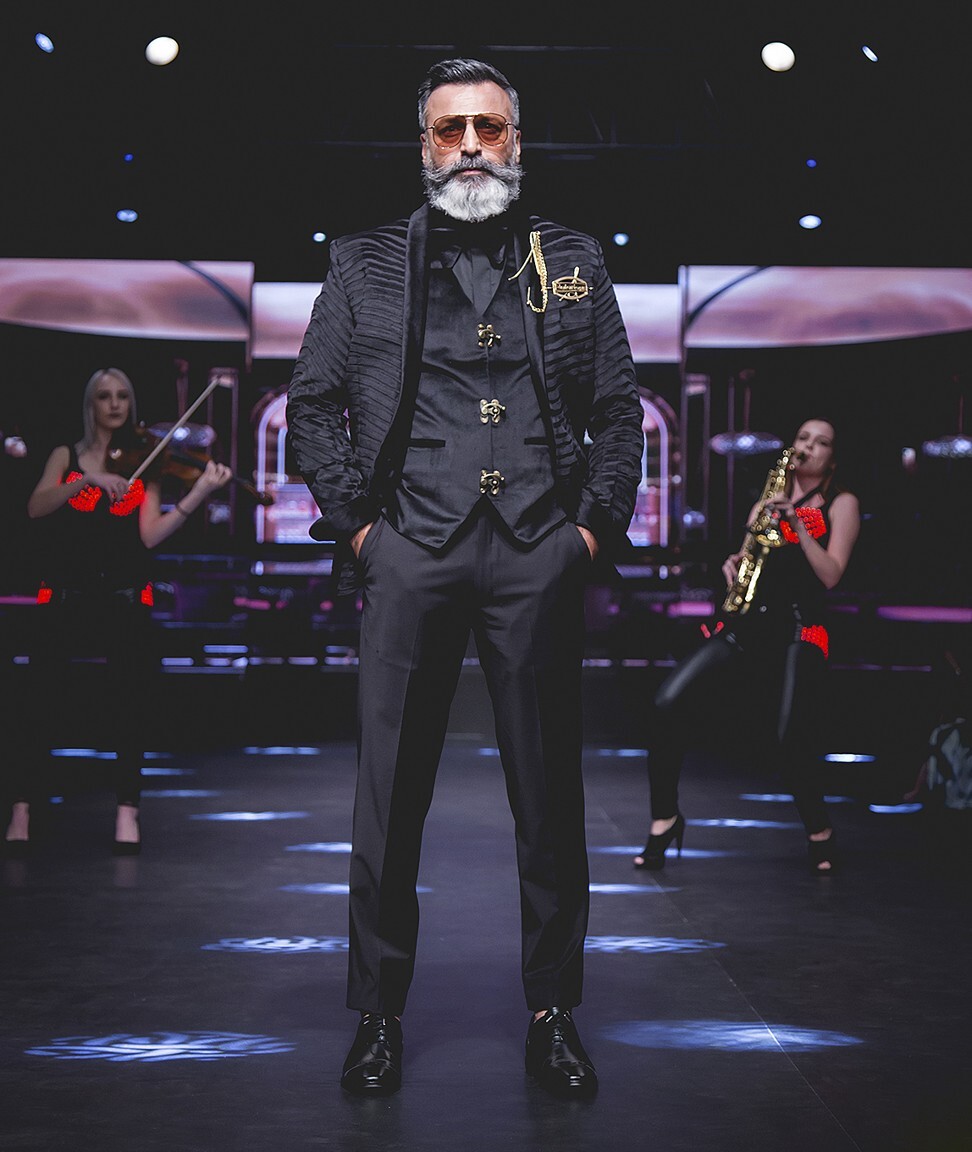
Indian model, 48, on ageing well: having discipline to stay fit and eat healthily most important, ex-army officer says
- Nitin Mehta left the Indian army and started modelling after a film director, struck by his appearance, approached him to ask if he wanted a role in a movie
- He says he has seen some shift in attitudes towards ageing in recent years, but for many in India old attitudes rooted in Hinduism still hold sway
Some older Indians relish the idea of being weak and frail in their old age so that they may be fussed over, cosseted and taken care of by their children, even when they are perfectly fit and capable. Some even play-act being old, stooping their shoulders and shuffling. At 40, they are middle-aged. At 50, they are elderly.
These prematurely aged Indians need to meet Nitin Mehta, 48, an officer who left the Indian army in 2016 after 21 fulfilling years to become a model. In his new career, Mehta has done photo shoots, TV commercials and walked the catwalk.
While other Indians his age are heading for a sober lifestyle, Mehta jogs 5km (3.1 miles) daily, lifts weights and rides his Harley-Davidson motorcycle.
“I am passionate about fitness. Our body is the only thing which stays with us until we die, so we need to take care of it. It is easily the best investment we can make,” he says.

A takeaway from army life that can extend to people as they age is to be disciplined, he says. “If you have discipline, you will make yourself exercise, eat well, have a structure to your day, keep up activities and maintain your appearance. It underpins the ability to do everything.”
Mehta’s dream as a boy was to follow in his father’s footsteps and join the army. In India, the army is held in high esteem and offers a good career and quality of life, along with the chance to see the vast country.
Aerial yoga at 75, Pilates and diving too – he’s ageing well
“My father never forced anything on me and let me decide what I wanted to do. Spending most of my adult life in the army has moulded me,” he says.
The toughest moments of his life were not in the army but during training at the National Defence Academy in the city of Pune in western India. “It was a real endurance test. It takes young boys and trains them mentally and physically to be men who can take on any challenge. The most important lesson I have learned is that there are no limits to what we can do, provided we want to [do it],” he says.
He tackles the need to keep his body in shape as a model with the same discipline he followed in the army. He refrains from confectionery and fried food but otherwise eats what he wants – but half portions, only. “That way I satisfy the craving for a particular dish and taste but keep the calories limited. That’s why I limit my alcohol intake, too – once you start drinking, you tend to eat more,” he says.

Mehta lives in India’s capital, Delhi, in the Vasant Kunj neighbourhood. In the army, he maintained and serviced helicopters until an injury in 2008 which impeded his work and curtailed his prospects. He took early retirement and was toying with the idea of starting a venture in biking when his life took an unexpected turn.
At an airport one day, a film director struck by his appearance and salt-and-pepper beard approached him to ask if he wanted a role in a movie.
The film didn’t work out, but it made Mehta consider trying something new: modelling. “And then things just started rolling,” he says.
Initially, his father was bewildered to see his army son sitting with his sister discussing his “modelling portfolio”. While tentative about the dramatic career switch, Mehta Sr never discouraged him.
I started greying early and people started treating me like an old man, calling me ‘uncle’ or thinking I was a grandfather. All they could see was the grey hair
Mehta was lucky to have had no resistance from his conventional middle-class family. “Throughout, my dad and sister have been supportive because they want me to do what I love. As for mum, she has always been my pillar. I am very close to my parents. They have given me everything in my life. I visit them at least once a week and never miss an opportunity to be with them,” he says.
His family feel proud to see him in television ads for famous suit brands or when he is recognised on the street and people ask to take selfies with him. Fame, he insists, has not changed him at all, only made his inbox fuller. “It’s loaded with emails which I cannot answer individually,” he says.
As he grows older, Mehta realises that the second important lesson that he learned from the army was the need for social support and connections. He was posted all over India, sometimes in remote locations with no electricity or mobile phones and limited food. The challenges were considerable – the lockdown and restrictions on movement that the coronavirus triggered pale in comparison, he says.
It was the camaraderie and brotherhood in the army that helped him overcome the hardships of those remote postings. The need for a social network to anchor you becomes even more important as people age, he says.

He has seen attitudes towards ageing change in recent years, but only among a few. His Harley-Davidson group, for example, has several members in their 50s and 60s. Some Indians believe age is no impediment at all to a full and active life.
Yet for the majority, the old attitudes hold sway. They are deeply rooted in the four stages of life postulated in Hinduism. The first is as a student, preparing for a career. The second is as a householder, when you are busy running a home, working and raising a family. The third is retirement, when people have fulfilled their obligations to family and society. The final stage is renunciation, when Hindus strip their lives of unnecessary possessions and focus on their inner life.
The problem with this structure is that perceptions and expectations are rigid. Anyone with grey hair is deemed to be an old person.
“I started greying early and people started treating me like an old man, calling me ‘uncle’ or thinking I was a grandfather. All they could see was the grey hair,” Mehta says.

He rarely thinks about age. “I don’t see age as something that needs tackling. Instead, the focus should be on being healthy and happy and if we manage that, ageing will look after itself,” he says.
When he has a rare low moment, he dons his helmet and heads out on his motorcycle. “It gives me time to be alone with myself. It’s like meditation. I feel fresh and energised after a ride.”
He still hopes he will land a strong role in a film after that first offer fell through. He has acted in three small regional films but only in very small roles. “It’s the natural next progression from modelling,” he says. “I need to keep pushing my limits.”


